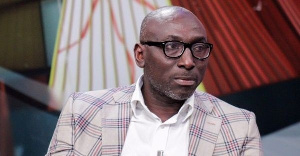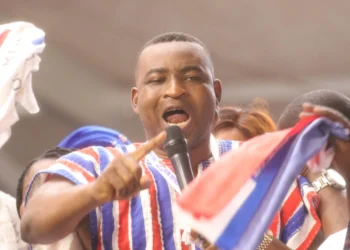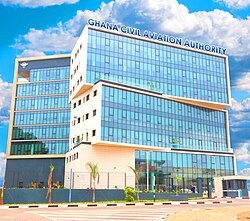Legal practitioner Abraham Amaliba has reiterated the constitutional limits on Ghana’s Supreme Court, asserting that even in the face of mounting public demand for transparency, the Court is bound strictly by what the Constitution allows.
His remarks come in the wake of renewed calls for a public hearing regarding the case involving Chief Justice Gertrude Torkornoo. Amaliba, who also serves on the legal and communication teams of the National Democratic Congress (NDC), emphasised that while democratic aspirations may demand openness, those demands cannot override the law.
“Democracy is different from what the law is. The law is not democracy. Democracy is not a law. These are two different things. Good governance is what you are talking about, but the law is the law as the embattled Chief Justice said’
Abraham Amaliba, NDC Communications
Speaking in response to public agitation for an open hearing in the case of the embattled Chief Justice, Amaliba warned against confusing legal provisions with democratic sentiment. He maintained that the Supreme Court is a creation of the Constitution and cannot function outside the boundaries clearly laid out within it.
“The Supreme Court is not above the Constitution. The Supreme Court can only do what the Constitution says it can do. The Supreme Court cannot do what the Constitution says it cannot do”
Abraham Amaliba, NDC Communications

His comments directly address arguments that the court should forgo the requirement for an in-camera hearing in favour of public accountability. He cautioned that bypassing constitutional provisions in the name of democracy would amount to dismantling the very document that defines the powers of the court.
Protecting National Interest
Responding to what value secrecy provides when the person at the centre of the case, Chief Justice Torkornoo, has expressed readiness to waive confidentiality, Amaliba acknowledged that the framers of the Constitution may have had national interests in mind when mandating private hearings in such sensitive matters.
“I want to believe that the framers of the Constitution were of the view that with such matters, because of the position of the Supreme Court, there is some information that when leaked may have some negative impact on the country”
Abraham Amaliba, NDC Communications
Amaliba speculated that the architects of Ghana’s constitutional order might have considered the broader consequences of public disclosures involving the judiciary. Such disclosures, he argued, could potentially touch on matters of national security or public health – domains that require confidentiality to prevent unintended harm.

“We don’t know where it will touch. We don’t know which aspect of our life as a country that this may negatively impact,” he explained.
He dismissed comparisons between the current situation and past restrictions on the use of cameras in courtrooms. According to him, earlier practices were governed by tradition rather than explicit legal prohibitions. As such, they were more flexible and could be altered with time and context.
“It was just practice, and so you could easily do away with the practice. But in this one, it is clearly stated, and you cannot just do away with it,” he said, explaining that the current case differs because it involves a constitutional directive that cannot be disregarded without undermining the legal framework itself.
Amaliba also countered suggestions that alternative solutions, such as inviting foreign justices or creating ad hoc panels, could bypass the Constitution’s directives. He insisted that the Constitution has already defined the procedures, and the country must follow them regardless of external pressure or political expediency.
His position reflects a broader caution within legal circles about stretching constitutional interpretations to satisfy public or political demands. As Ghana’s democratic institutions continue to face scrutiny, Amaliba’s comments underscore the ongoing tension between legal restraint and public expectation.
READ MORE: “White Genocide” In South Africa Overshadow Trump-Ramaphosa Talks







